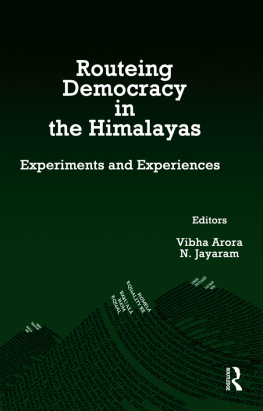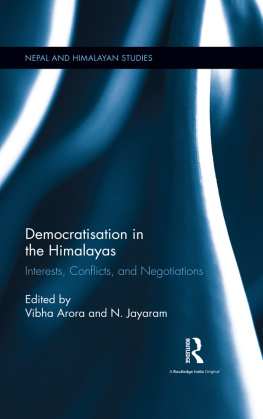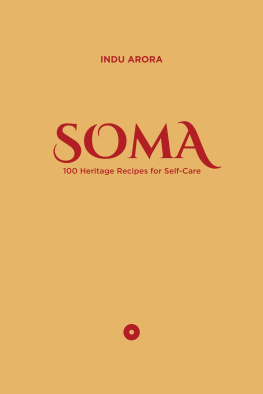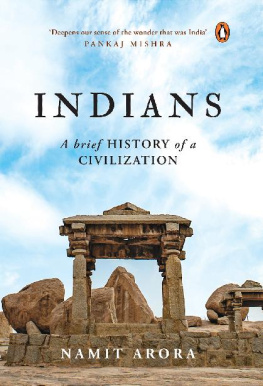Vibha Arora - Routeing Democracy in the Himalayas: Experiments and Experiences
Here you can read online Vibha Arora - Routeing Democracy in the Himalayas: Experiments and Experiences full text of the book (entire story) in english for free. Download pdf and epub, get meaning, cover and reviews about this ebook. year: 2012, publisher: Routledge, genre: Politics. Description of the work, (preface) as well as reviews are available. Best literature library LitArk.com created for fans of good reading and offers a wide selection of genres:
Romance novel
Science fiction
Adventure
Detective
Science
History
Home and family
Prose
Art
Politics
Computer
Non-fiction
Religion
Business
Children
Humor
Choose a favorite category and find really read worthwhile books. Enjoy immersion in the world of imagination, feel the emotions of the characters or learn something new for yourself, make an fascinating discovery.
- Book:Routeing Democracy in the Himalayas: Experiments and Experiences
- Author:
- Publisher:Routledge
- Genre:
- Year:2012
- Rating:5 / 5
- Favourites:Add to favourites
- Your mark:
- 100
- 1
- 2
- 3
- 4
- 5
Routeing Democracy in the Himalayas: Experiments and Experiences: summary, description and annotation
We offer to read an annotation, description, summary or preface (depends on what the author of the book "Routeing Democracy in the Himalayas: Experiments and Experiences" wrote himself). If you haven't found the necessary information about the book — write in the comments, we will try to find it.
Vibha Arora: author's other books
Who wrote Routeing Democracy in the Himalayas: Experiments and Experiences? Find out the surname, the name of the author of the book and a list of all author's works by series.
Routeing Democracy in the Himalayas: Experiments and Experiences — read online for free the complete book (whole text) full work
Below is the text of the book, divided by pages. System saving the place of the last page read, allows you to conveniently read the book "Routeing Democracy in the Himalayas: Experiments and Experiences" online for free, without having to search again every time where you left off. Put a bookmark, and you can go to the page where you finished reading at any time.
Font size:
Interval:
Bookmark:
Our respective families.
- Part I. Identity Politics and Democratic Transition
- 1. The Adivasi/Janajati Movement in Nepal: Myths and Realities of Indigeneity
- 2. The Power of Script: Phlgunandas Role in the Formation of Kiranti Ethnicity
- 3. Refiguring Rights, Redefining Culture: Hill Council in Kargil, Jammu and Kashmir
- Part II. Development of Democratic Routes
- 4. The Paradox of Democracy in the Northeast and the Eastern Himalayas
- 5. Deep Democracy or Ethnocentrism? Locating Voice in the Protests against Development in Northeastern India
- 6. Democracy through the Gun? Challenges of Post-conflict Reconstruction in Conflict-torn Assam
- 7. Democratic Transition in Jammu and Kashmir: Lessons from Nature Conservation Interventions
- 8. Tibetan Democracy-in-Exile: The Uniqueness and Limitations of Democratic Procedures in a Territory-less Polity
- 9. The Ebb and Flow of Nepalese Democracy
- 10. The Changing Discourse of Social Justice in Nepal
Font size:
Interval:
Bookmark:
Similar books «Routeing Democracy in the Himalayas: Experiments and Experiences»
Look at similar books to Routeing Democracy in the Himalayas: Experiments and Experiences. We have selected literature similar in name and meaning in the hope of providing readers with more options to find new, interesting, not yet read works.
Discussion, reviews of the book Routeing Democracy in the Himalayas: Experiments and Experiences and just readers' own opinions. Leave your comments, write what you think about the work, its meaning or the main characters. Specify what exactly you liked and what you didn't like, and why you think so.













